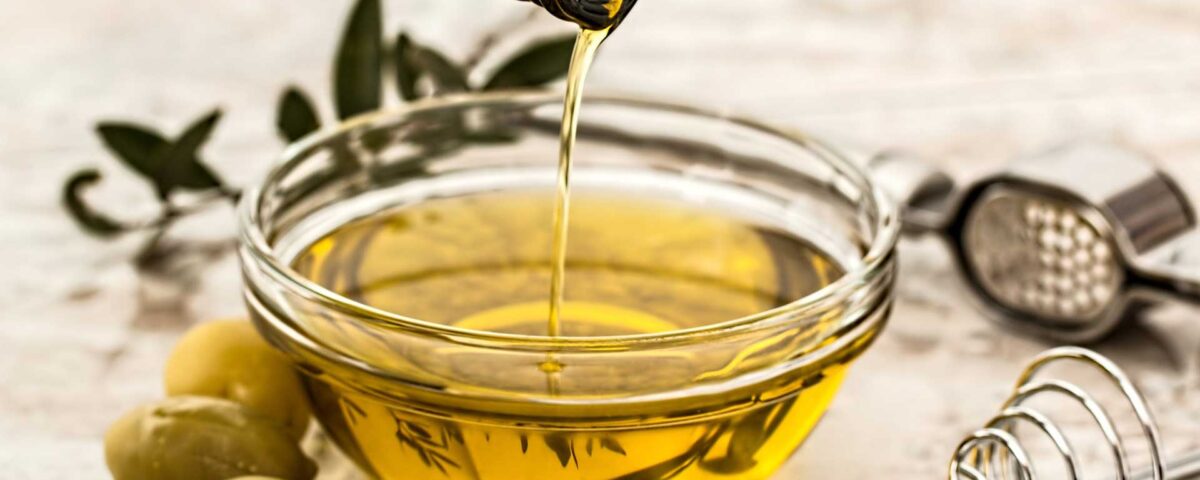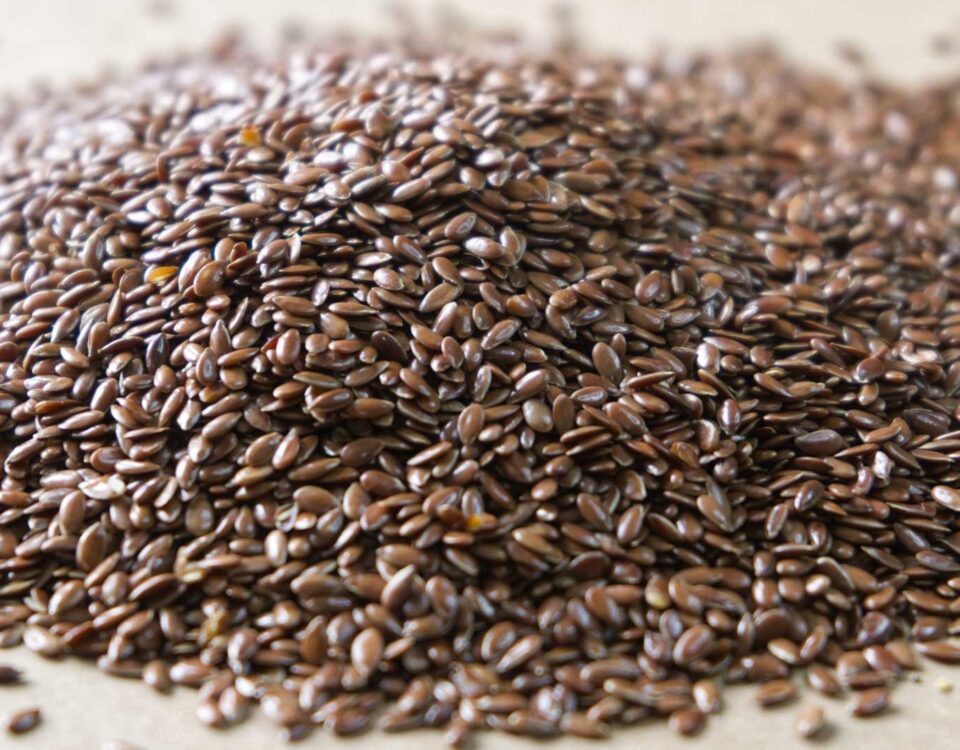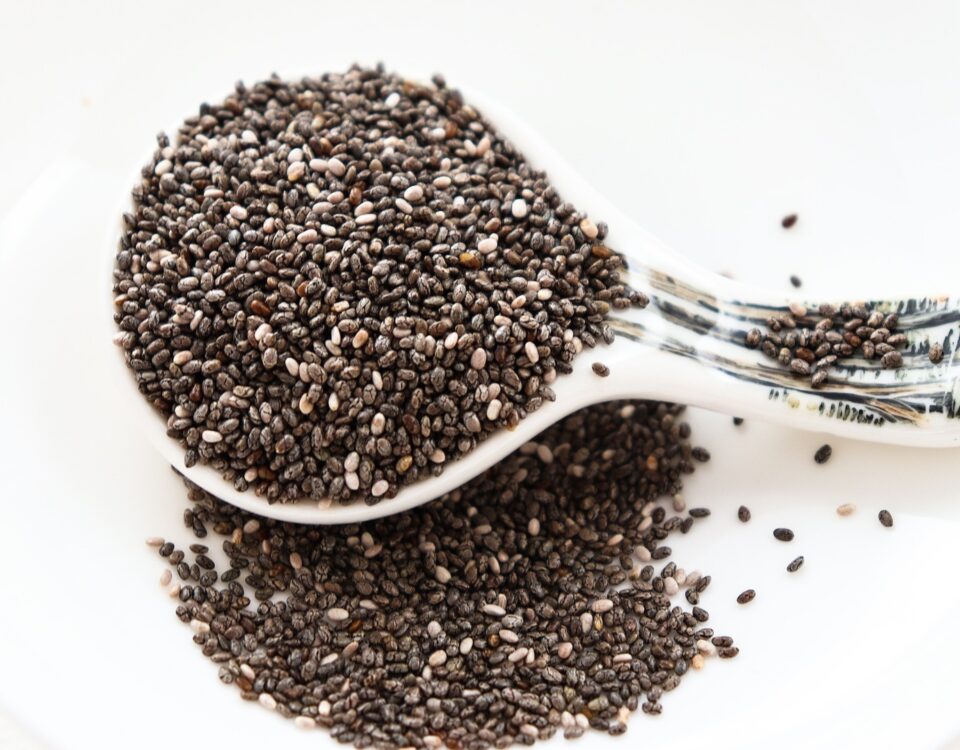Extra virgin olive oil

Vitamin D
February 22, 2023Extra virgin olive oil is considered the highest quality and most flavorful type of olive oil and is made solely from the first cold-pressed olives without any chemical treatments or additives. It is extracted from the first pressing of the olives and has an acidity level of less than 0.8%.
Extra virgin olive oil is known for its fruity and slightly bitter flavor and is rich in antioxidants and healthy monounsaturated fats. It is commonly used in Mediterranean cuisine for cooking, dressing salads, and dipping bread.
COMPOUNDS IN EXTRA VIRGIN OLIVE OIL
Extra virgin olive oil is a type of oil that is made from the first cold pressing of the olives, and it contains a variety of beneficial compounds, including:
- Monounsaturated fatty acids (MUFAs): Extra virgin olive oil is high in MUFAs, which are healthy fats that have been shown to improve cholesterol levels and reduce the risk of heart disease.
- Polyphenols: Extra virgin olive oil contains polyphenols, which are antioxidants that have anti-inflammatory properties and may help protect against chronic diseases.
- Vitamin E: Extra virgin olive oil is a good source of vitamin E, which is an antioxidant that helps protect the body against damage from free radicals.
- Squalene: Extra virgin olive oil contains squalene, which is a natural compound that may have anti-cancer properties and may help protect against heart disease.
- Phytosterols: Extra virgin olive oil contains phytosterols, which are plant compounds that may help lower cholesterol levels and reduce the risk of heart disease.
- Oleocanthal: Extra virgin olive oil contains oleocanthal, which is a compound that has anti-inflammatory properties similar to ibuprofen.
Overall, the combination of these beneficial compounds makes extra virgin olive oil a healthy addition to the diet and may provide a variety of health benefits. However, it’s important to consume extra virgin olive oil in moderation as part of an overall healthy diet, as consuming too much of any type of oil can lead to weight gain and other health problems.
PHYTONUTRIENTS IN EXTRA VIRGIN OLIVE OIL
Extra virgin olive oil is rich in phytonutrients, which are plant compounds that have various health benefits. One study published in the journal Food Research International identified 36 different phenolic compounds in extra virgin olive oil, including oleuropein, hydroxytyrosol, and tyrosol. Another study published in the Journal of Agricultural and Food Chemistry identified 20 different carotenoids in olive oil, including lutein, zeaxanthin, and beta-carotene.
Some of the phytonutrients found in extra virgin olive oil include:
- Phenolic acids: Extra virgin olive oil is rich in phenolic acids, such as caffeic acid, p-coumaric acid, and ferulic acid. These compounds have anti-inflammatory and antioxidant properties and may help protect against chronic diseases.
- Flavonoids: Extra virgin olive oil contains various flavonoids, such as quercetin, apigenin, and luteolin. These compounds have antioxidant and anti-inflammatory properties and may help reduce the risk of chronic diseases, such as cancer and heart disease.
- Oleuropein: Oleuropein is a polyphenol found in extra virgin olive oil that has been shown to have anti-inflammatory and antioxidant properties. It may also help improve cholesterol levels & lower blood pressure.
- Hydroxytyrosol: Hydroxytyrosol is a powerful antioxidant found in extra virgin olive oil that has been shown to have anti-inflammatory, anti-cancer, and neuroprotective effects.
- Lignans: Extra virgin olive oil contains lignans, which are plant compounds that have anti-cancer properties and may help reduce the risk of breast cancer.
EXTRA VIRGIN OIL BENEFITS
EXTRA VIRGIN OLIVE OIL AND HEART HEALTH
Extra virgin olive oil is considered to be one of the healthiest types of oil and has been shown to have numerous benefits for heart health.
First, extra virgin olive oil is rich in monounsaturated fatty acids, which can help improve cholesterol levels by increasing levels of HDL (good) cholesterol and decreasing levels of LDL (bad) cholesterol. This way it helps in reducing the risk of heart disease.
Second, extra virgin olive oil is also rich in antioxidants, including polyphenols, which have been shown to have anti-inflammatory properties. Chronic inflammation is a risk factor for heart disease, and reducing inflammation in the body may help improve overall heart health.
Additionally, research has suggested that consuming extra virgin olive oil as part of a Mediterranean diet may help reduce the risk of heart disease. The Mediterranean diet is characterized by the high consumption of fruits, vegetables, whole grains, legumes, nuts, fish, and olive oil, and has been associated with numerous health benefits, including improved heart health.
EXTRA VIRGIN OLIVE OIL IN WEIGHT LOSS
Extra virgin olive oil can be a healthy addition to a weight loss diet for several reasons.
First, extra virgin olive oil is a good source of healthy fats, which can help you feel full and satisfied after meals. This can help reduce the overall amount of food you consume and may aid in weight loss.
Second, some research has suggested that the monounsaturated fatty acids in extra virgin olive oil may help improve insulin sensitivity and blood sugar control, which can be beneficial for weight loss. High blood sugar levels can contribute to insulin resistance and weight gain, so improving blood sugar control may help support weight loss efforts.
Lastly, extra virgin olive oil can be a good replacement for less healthy fats and oils, such as butter or margarine. Using extra virgin olive oil in cooking and as a salad dressing can help reduce overall calorie intake and increase the intake of healthy fats, which may support weight loss.
EXTRA VIRGIN OLIVE OIL IN DIABETES
Extra virgin olive oil can be a healthy addition to the diet of people with diabetes for several reasons.
First, extra virgin olive oil is a good source of monounsaturated fatty acids, which have been shown to improve insulin sensitivity and blood sugar control. Improving insulin sensitivity can help the body use insulin more effectively, which may help reduce blood sugar levels.
Second, the antioxidants in extra virgin olive oil can help reduce oxidative stress and inflammation, both of which are associated with an increased risk of diabetes complications. Reducing inflammation can also help improve insulin sensitivity and blood sugar control.
Third, extra virgin olive oil has a low glycemic index, which means it has a minimal effect on blood sugar levels. This makes Olive Oil an excellent choice for people suffering from diabetes.
EXTRA VIRGIN OLIVE OIL AS ANTI-INFLAMMATORY
Extra virgin olive oil has been shown to have anti-inflammatory properties, which can help reduce inflammation throughout the body.
One of the primary compounds in extra virgin olive oil that is responsible for its anti-inflammatory effects is oleocanthal. Oleocanthal has been shown to have a similar effect on the body as non-steroidal anti-inflammatory drugs (NSAIDs) like ibuprofen, but without the negative side effects that can come with these medications.
Research has suggested that consuming extra virgin olive oil as part of a healthy diet may help reduce levels of inflammatory markers in the blood, such as C-reactive protein (CRP). Chronic inflammation is thought to contribute to the development of numerous chronic diseases, including heart disease, cancer, and Alzheimer’s disease.
Additionally, some research has suggested that extra virgin olive oil may help reduce inflammation in the gut, which may help improve digestive health and reduce the risk of conditions like inflammatory bowel disease (IBD).
EXTRA VIRGIN OLIVE OIL AS ANALGESIC
Extra virgin olive oil has been suggested to have potential analgesic effects, although more research is needed to fully understand this potential benefit.
One of the compounds in extra virgin olive oil that may contribute to its analgesic effects is oleocanthal. Oleocanthal has been shown to have anti-inflammatory properties, which can help reduce pain and inflammation in the body. Additionally, oleocanthal has been shown to activate the same pain receptors in the body as NSAIDs like ibuprofen, which can provide pain relief.
Some research has suggested that consuming extra virgin olive oil may be beneficial for reducing pain and inflammation in conditions like rheumatoid arthritis and osteoarthritis. However, more research is needed to confirm these findings and determine the appropriate dose and duration of extra virgin olive oil consumption for analgesic effects.
EXTRA VIRGIN OLIVE OIL ANTIMICROBIAL EFFECT
Extra virgin olive oil has been shown to have antimicrobial properties, which means it may be effective against certain types of bacteria and fungi.
One of the compounds in extra virgin olive oil that is responsible for its antimicrobial effects is called oleuropein. Oleuropein has been shown to have antibacterial, antiviral, and antifungal properties, making it a potentially useful natural remedy for various infections.
Research has suggested that extra virgin olive oil may be effective against several types of bacteria, including Helicobacter pylori, which is a common bacteria that can cause stomach ulcers and other digestive issues. Additionally, extra virgin olive oil has been shown to be effective against some types of fungi, including Candida albicans, which can cause infections in the mouth and genital area.
EXTRA VIRGIN OLIVE OIL ANTI-CANCER PROPERTIES
Extra virgin olive oil has been suggested to have potential anti-cancer properties, although more research is needed to fully understand this potential benefit.
Some studies have suggested that the polyphenols in extra virgin olive oil may have antioxidant and anti-inflammatory properties that could help prevent cancer. For example, a study published in the journal BMC Cancer found that oleocanthal, a compound found in extra virgin olive oil, inhibited the growth of breast cancer cells in the laboratory.
Another study published in the journal Cancer Prevention Research found that consuming extra virgin olive oil for three weeks increased the expression of genes that are associated with the prevention of breast cancer in women at high risk for the disease.
EXTRA VIRGIN OLIVE OIL HAS ANTIARTHRITIC PROPERTIES
Extra virgin olive oil has been suggested to have antiarthritic properties, which means it may have a beneficial effect on arthritis and related conditions.
One of the compounds in extra virgin olive oil that is thought to be responsible for its antiarthritic effects is oleocanthal. Oleocanthal has been shown to have anti-inflammatory properties similar to ibuprofen, which is commonly used to treat arthritis pain and inflammation.
Several studies have suggested that consuming extra virgin olive oil may help reduce inflammation and pain associated with arthritis. For example, a study published in the journal Nutrients found that consuming extra virgin olive oil for 12 weeks improved joint pain, stiffness, and physical function in individuals with rheumatoid arthritis.
Another study published in the journal Arthritis Research and Therapy found that a diet supplemented with extra virgin olive oil for 16 weeks reduced inflammation and oxidative stress in individuals with osteoarthritis.
HOW MUCH EXTRA VIRGIN OLIVE OIL PER DAY
The amount of extra virgin olive oil (EVOO) a person should consume per day can vary depending on factors such as age, sex, weight, and activity level. However, the general recommendation is to consume about 1-2 tablespoons (15-30 mL) of EVOO per day.
It’s important to note that EVOO is high in calories and fat, so it should be consumed in moderation as part of an overall healthy diet. While EVOO is a healthy fat, it still contains about 120 calories and 14 grams of fat per tablespoon. Therefore, it’s important to account for these calories and fats in your overall daily calorie and macronutrient intake.
Additionally, it’s recommended to choose high-quality EVOO that is fresh, pure, and minimally processed to maximize its health benefits.
TIPS TO FIND REAL AND ORIGINAL EXTRA VIRGIN OLIVE OIL
It can be difficult to find real and original extra virgin olive oil (EVOO) due to the prevalence of counterfeit or low-quality products in the market. Here are some tips to help you find real and high-quality EVOO:
- Look for certification: Look for certification seals on the label, such as the International Olive Council (IOC) or North American Olive Oil Association (NAOOA) seal, which indicate that the product has been independently tested and meets certain quality standards.
- Check the harvest date: Look for the harvest date on the label, as EVOO is best consumed within two years of harvest. Fresher EVOO is also more likely to retain its health benefits.
- Check the bottle: Look for EVOO that is sold in dark glass bottles, which help to protect the oil from light and preserve its quality.
- Taste and smell the oil: Real EVOO should have a fruity, peppery, and slightly bitter taste and aroma. If the oil tastes rancid or has a greasy texture, it may be of low quality or adulterated.
- Buy from a reputable source: Purchase EVOO from a reputable source, such as a trusted grocery store, specialty food store, or directly from a producer.
- Be willing to pay more: Real EVOO can be more expensive than lower-quality oils, so be willing to pay a bit more for a high-quality product.
By following these tips, you can increase your chances of finding real and high-quality extra virgin olive oil.





